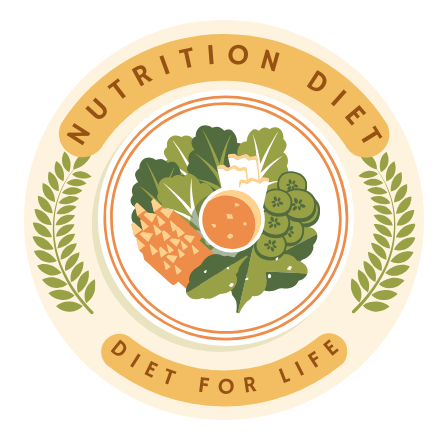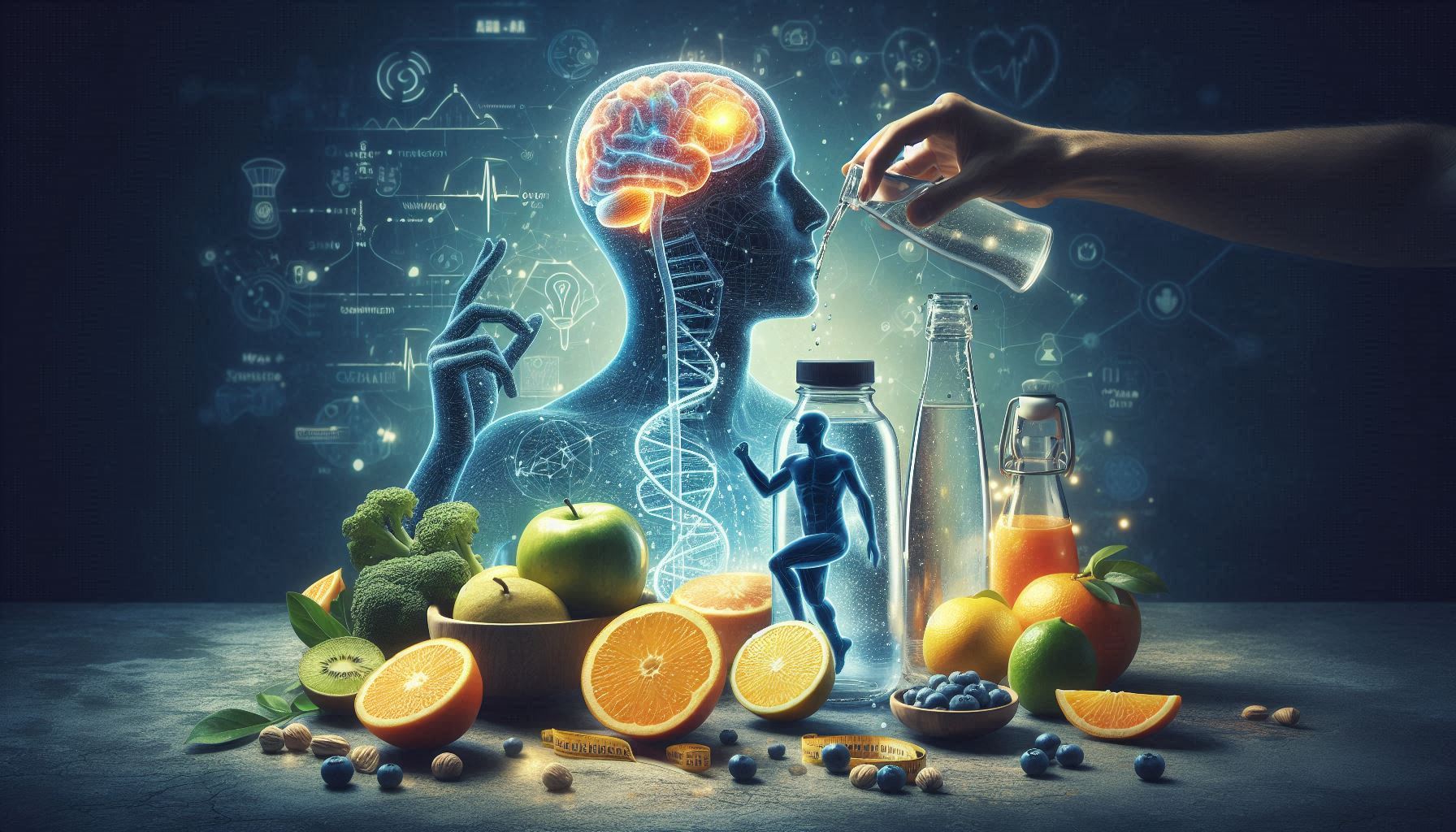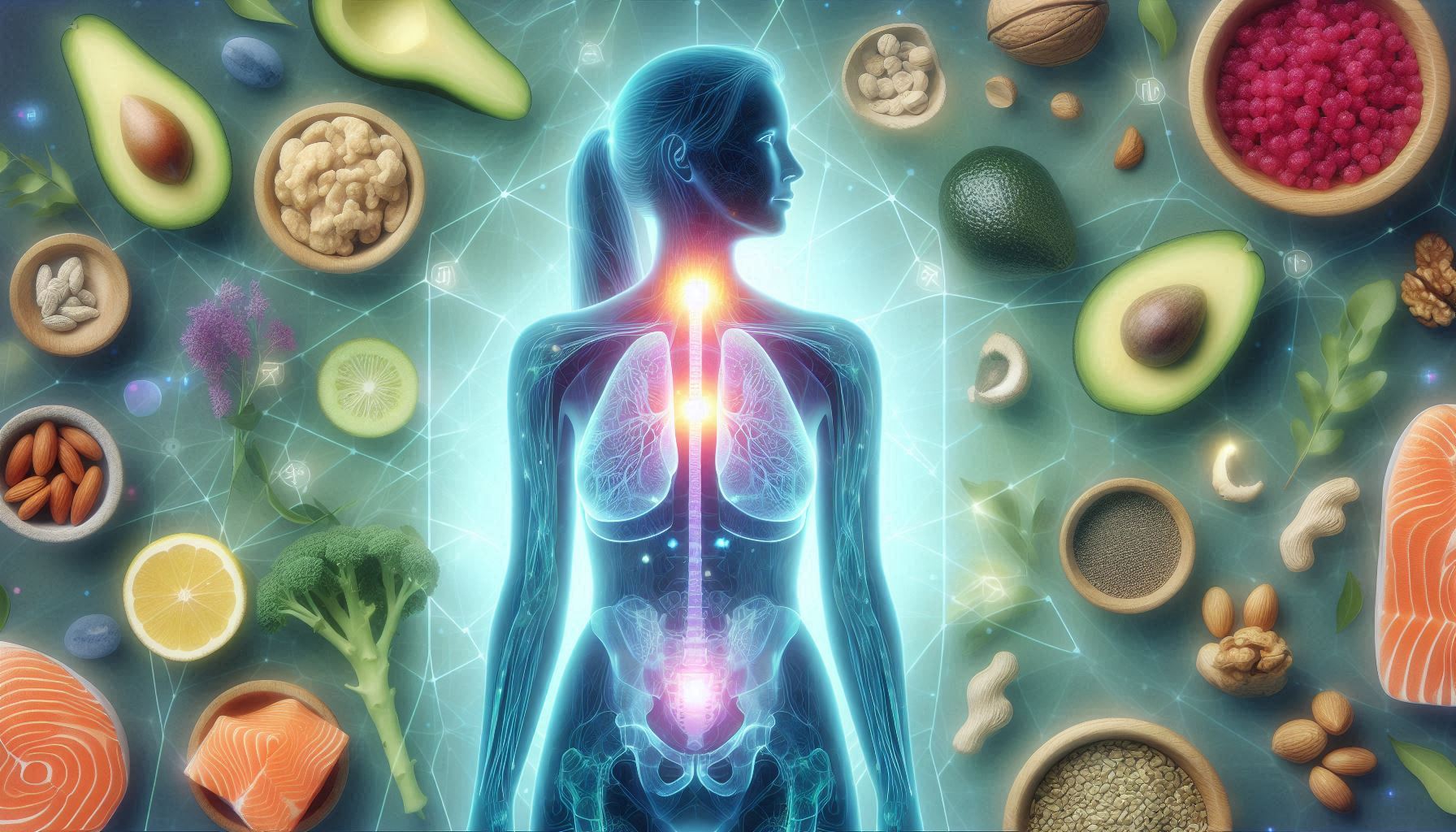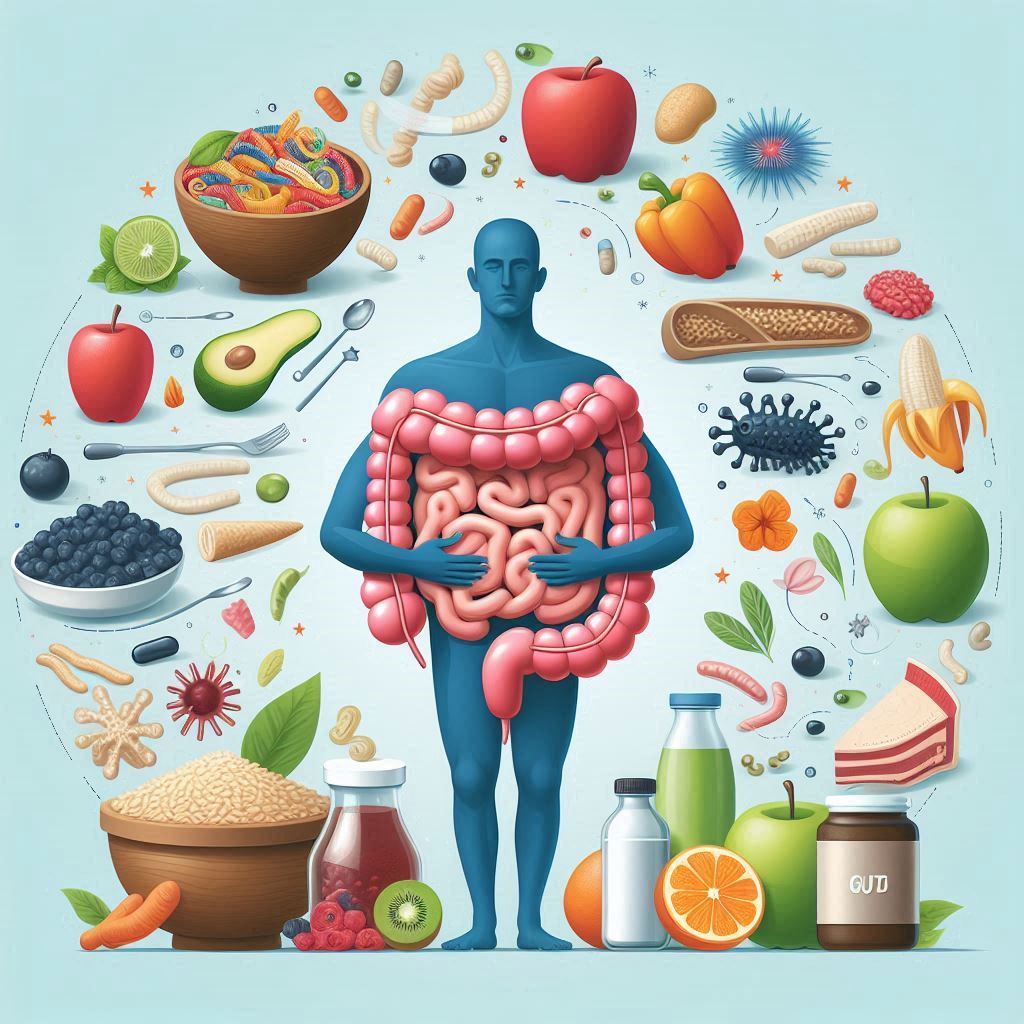Micronutrients, though needed in small amounts, are essential for maintaining optimal health. These vitamins and minerals play a crucial role in a wide range of bodily functions, including immune support, energy production, bone health, and cognitive function. While macronutrients such as carbohydrates, proteins, and fats often take the spotlight due to their role in providing energy, micronutrients are just as vital for ensuring that the body operates efficiently. Without adequate intake of these essential nutrients, our body’s intricate systems can become compromised, leading to a variety of health issues.
This guide explores the importance of vitamins and minerals, highlighting the key micronutrients you shouldn’t overlook. We’ll examine the functions of each vitamin and mineral, explaining how they contribute to overall health, and how to ensure you’re meeting your daily requirements. It also discusses the potential consequences of deficiencies, emphasizing the critical role these nutrients play in preventing diseases and supporting well-being. Understanding the significance of micronutrients and incorporating them into your diet is fundamental to maintaining long-term health. Whether it’s through a balanced diet or careful supplementation, prioritizing these small yet mighty nutrients can help you feel your best and prevent a range of health complications. By giving attention to vitamins and minerals, we can empower our bodies to function at their highest potential.
What Are Micronutrients?
Micronutrients are essential nutrients required by the body in small amounts, yet they are vital for maintaining optimal health and well-being. These nutrients are divided into two primary categories:
- Vitamins: Organic compounds that are essential for a variety of biochemical processes in the body. They are required in trace amounts but play a significant role in regulating metabolism, supporting the immune system, and ensuring proper functioning of bodily systems. Vitamins can be either fat-soluble or water-soluble, depending on how they are absorbed, stored, and used in the body.
- Minerals: Inorganic elements that contribute to the structural development of bones, teeth, and tissues. They are also involved in numerous metabolic processes, such as enzyme activation, nerve function, and fluid balance. Unlike vitamins, minerals are not organic compounds, but they are equally crucial for maintaining health.
While micronutrients do not directly provide energy (calories), they are essential for enabling the body to convert macronutrients—carbohydrates, proteins, and fats—into usable energy. Micronutrients also facilitate key biological functions, such as maintaining healthy bones, promoting growth, supporting the immune system, and ensuring normal nervous system function. Essentially, they act as co-factors for the effective use of macronutrients and support overall physiological functions that sustain life.
The Vital Role of Vitamins
Vitamins are organic compounds that the body requires in small amounts to perform various vital functions. There are 13 recognized vitamins, each with a unique and important role in maintaining health. Vitamins are typically categorized based on their solubility:
- Fat-Soluble Vitamins: These vitamins are absorbed alongside dietary fat and are stored in the body’s fatty tissues and liver. They include:
- Vitamin A (important for vision and immune function)
- Vitamin D (supports bone health and immune function)
- Vitamin E (protects cells from oxidative damage)
- Vitamin K (essential for blood clotting and bone health)
- Water-Soluble Vitamins: These vitamins dissolve in water and are not stored in the body. They need to be replenished regularly through diet. They include:
- Vitamin C (supports the immune system and skin health)
- B Vitamins (support metabolism, energy production, and red blood cell formation)
Both fat-soluble and water-soluble vitamins play critical roles in regulating vital processes, and maintaining a balanced intake of all vitamins is essential for overall health.
1. Vitamin A (Retinol and Beta-Carotene)
Role in Health: Vitamin A is vital for several critical functions. It plays a pivotal role in maintaining healthy vision, particularly in low-light conditions. Vitamin A is also crucial for the proper functioning of the immune system, skin health, and cell growth. Additionally, it plays a role in reproductive health and fetal development during pregnancy.
Food Sources:
- Animal Sources (Retinol): Liver, dairy products (milk, cheese, eggs), fish oils.
- Plant Sources (Beta-Carotene): Carrots, sweet potatoes, spinach, kale, butternut squash, and other orange and dark leafy vegetables.
Deficiency: Lack of vitamin A can result in a condition known as night blindness, where the ability to see in low-light or dim conditions is impaired. Over time, deficiency can also lead to dry skin, a weakened immune system, and an increased susceptibility to infections.
2. Vitamin C (Ascorbic Acid)
Role in Health: Vitamin C is a powerful antioxidant that protects the body’s cells from oxidative damage. It plays an essential role in collagen formation, which is necessary for healthy skin, blood vessels, bones, and cartilage. Vitamin C also boosts the immune system, helps the body absorb iron from plant-based foods, and supports wound healing.
Food Sources:
- Citrus fruits: Oranges, grapefruits, lemons.
- Other Fruits & Vegetables: Strawberries, kiwi, bell peppers, tomatoes, broccoli, Brussels sprouts.
Deficiency: Vitamin C deficiency can lead to scurvy, a condition marked by bleeding gums, joint pain, and poor wound healing. Inadequate vitamin C intake can also make the body more susceptible to infections and illnesses.
3. Vitamin D
Role in Health: Vitamin D is critical for calcium absorption in the gut, which directly impacts bone health. It is essential for the maintenance of strong bones and teeth, and it also plays a role in regulating the immune system. Emerging research indicates that vitamin D may help prevent chronic diseases such as cardiovascular disease and diabetes.
Food Sources:
- Fatty Fish: Salmon, mackerel, sardines.
- Fortified Foods: Fortified milk, cereals, and plant-based milk alternatives like almond or soy milk.
- Eggs and Liver: These provide small amounts of vitamin D.
Deficiency: Inadequate vitamin D intake can lead to osteomalacia (softening of the bones) in adults and rickets in children. It can also increase the risk of developing osteoporosis, a condition characterized by fragile bones, and other chronic conditions.
4. Vitamin B12 (Cobalamin)
Role in Health: Vitamin B12 is essential for red blood cell production, DNA synthesis, and the maintenance of the nervous system. It also plays a significant role in the metabolism of every cell in the body. Vitamin B12 is unique in that it is stored in the liver for long periods, and deficiency symptoms may not appear until years later.
Food Sources:
- Animal-based Foods: Meat, poultry, fish, dairy products, eggs.
- Fortified Foods: Some plant-based milks, cereals, and nutritional yeast.
Deficiency: A deficiency in vitamin B12 can lead to pernicious anemia, characterized by fatigue, weakness, pale skin, and difficulty breathing. It can also cause nerve damage, leading to numbness and tingling in the hands and feet, as well as cognitive problems, including memory loss.
5. Vitamin E (Tocopherol)
Role in Health: Vitamin E is a fat-soluble antioxidant that protects cells from oxidative damage. It is also involved in immune function, skin health, and the regulation of other vitamins, such as vitamin A. Its role in reducing inflammation is also of significant interest in various chronic disease studies.
Food Sources:
- Nuts and Seeds: Almonds, sunflower seeds.
- Vegetable Oils: Sunflower, olive, and soybean oils.
- Green Leafy Vegetables: Spinach, Swiss chard, and broccoli.
Deficiency: Vitamin E deficiency is rare, but when it does occur, it can cause nerve and muscle damage, leading to symptoms such as vision problems, muscle weakness, and immune system dysfunction.
6. Vitamin K
Role in Health: Vitamin K is primarily known for its role in blood clotting. It helps in the production of clotting factors that prevent excessive bleeding. Additionally, vitamin K is important for bone health as it supports the function of osteocalcin, a protein that helps bind calcium to bones.
Food Sources:
- Leafy Greens: Kale, spinach, Swiss chard, and collard greens.
- Other Sources: Brussels sprouts, broccoli, cabbage, and fish.
Deficiency: A deficiency in vitamin K can lead to excessive bleeding and easy bruising. It can also impair bone mineralization, increasing the risk of fractures.
The Importance of Minerals for Health
Minerals, like vitamins, are essential for various physiological functions. They are inorganic elements that the body cannot produce, so we must obtain them from the diet. Minerals are classified into macrominerals (needed in larger quantities) and trace minerals (required in smaller amounts).
1. Calcium
Role in Health: Calcium is the most abundant mineral in the human body, primarily stored in bones and teeth. It is crucial for maintaining bone density and strength, muscle function, nerve signaling, and blood clotting. Calcium also helps in the regulation of heart rhythm and hormone secretion.
Food Sources:
- Dairy Products: Milk, cheese, and yogurt.
- Leafy Greens: Kale, bok choy, and broccoli.
- Fortified Foods: Tofu, almond milk, and fortified cereals.
Deficiency: Calcium deficiency can lead to osteoporosis, a condition where bones become brittle and more prone to fractures. In children, calcium deficiency can result in poor bone development, leading to rickets.
2. Magnesium
Role in Health: Magnesium is involved in over 300 biochemical reactions, including energy production, muscle and nerve function, blood pressure regulation, and bone health. It helps in the formation of bones and teeth and plays a role in regulating glucose and insulin levels.
Food Sources:
- Nuts and Seeds: Almonds, cashews, pumpkin seeds.
- Whole Grains: Brown rice, oats, quinoa.
- Leafy Greens: Spinach, Swiss chard.
Deficiency: Magnesium deficiency can cause muscle cramps, fatigue, weakness, and abnormal heart rhythms. Long-term deficiency has been linked to conditions like hypertension, type 2 diabetes, and cardiovascular disease.
3. Iron
Role in Health: Iron is a key component of hemoglobin, the protein responsible for carrying oxygen in red blood cells. It is also involved in cellular respiration, helping to produce energy. Adequate iron intake is essential for maintaining energy levels and ensuring optimal immune function.
Food Sources:
- Heme Iron (Animal Sources): Red meat, poultry, fish, and shellfish.
- Non-Heme Iron (Plant Sources): Lentils, beans, spinach, tofu, quinoa, fortified cereals.
Deficiency: Iron deficiency is the leading cause of anemia, a condition where the body lacks enough red blood cells to carry adequate oxygen to tissues. Symptoms of iron deficiency anemia include fatigue, pale skin, weakness, and shortness of breath.
4. Potassium
Role in Health: Potassium is an electrolyte that helps regulate fluid balance in the body, aids in muscle contractions, and maintains nerve function. It also plays a vital role in heart function by helping maintain normal blood pressure.
Food Sources:
- Fruits: Bananas, oranges, apricots, and cantaloupe.
- Vegetables: Potatoes, tomatoes, spinach, and broccoli.
- Legumes: Beans, lentils, and peas.
Deficiency: Potassium deficiency can result in muscle weakness, cramps, fatigue, and abnormal heart rhythms. Severe potassium deficiency can be life-threatening if not addressed.
How to Ensure You’re Getting Enough Micronutrients
Maintaining a balanced and nutrient-dense diet is key to ensuring you’re getting the necessary micronutrients for optimal health. Here are some tips to help you meet your micronutrient needs:
- Eat a Variety of Whole Foods: Focus on a diet rich in fruits, vegetables, whole grains, lean proteins, and healthy fats. Each food group provides a unique array of vitamins and minerals.
- Prioritize Nutrient-Dense Foods: Opt for foods that are high in essential micronutrients but low in empty calories. Leafy greens, colorful vegetables, fruits, nuts, seeds, and legumes should be a staple in your diet.
- Consider Fortified Foods: Certain groups, such as vegetarians or individuals with specific health conditions, may benefit from fortified foods like fortified plant milks, cereals, and nutritional yeast.
- Supplements (If Necessary): While it’s always best to obtain nutrients from whole foods, supplements can help fill nutritional gaps. Consult a healthcare provider before starting any supplementation regimen.
- Mind Cooking Methods: The way you prepare your food can affect nutrient retention. Steaming vegetables, for instance, helps preserve more vitamins and minerals compared to boiling them.
Conclusion
Micronutrients, including vitamins and minerals, are vital yet often overlooked components of our health. Despite being required in only small quantities, their influence on our physical and mental well-being is profound. These nutrients play critical roles in a range of bodily functions, from immune support to energy production, bone health, and even cognitive function. Without adequate intake of these essential micronutrients, our bodies cannot perform optimally, and deficiencies can lead to a host of health issues. A well-rounded, nutrient-rich diet is key to preventing micronutrient deficiencies and ensuring that our bodies have the support they need to thrive. By prioritizing foods rich in essential vitamins and minerals such as fruits, vegetables, whole grains, lean proteins, and healthy fats we can maintain our energy levels, strengthen the immune system, support bone integrity, and lower the risk of chronic diseases. Understanding the importance of micronutrients and making conscious efforts to meet our daily requirements can make a significant difference in our overall health. While these nutrients are needed in small amounts, their impact is substantial, helping us stay strong, healthy, and resilient. Don’t underestimate the power of micronutrients they are the unsung heroes of a healthy, thriving body.
SOURCES
Institute of Medicine. 2001. Dietary reference intakes for vitamin A, vitamin K, arsenic, boron, chromium, copper, iodine, iron, manganese, molybdenum, nickel, silicon, vanadium, and zinc. National Academy Press.
World Health Organization. 2015. Micronutrient deficiencies: A major cause of health problems. Geneva: World Health Organization.
Bender, D. A. 2003. Nutritional biochemistry of the vitamins (2nd ed.). Cambridge University Press.
National Institutes of Health. 2021. Vitamins and minerals: Importance in human health. U.S. Department of Health & Human Services.
Harrison, S. G., & Goh, T. B. 2009. The role of vitamins in immune function. British Journal of Nutrition, 101(1), 23-37.
Rizzo, G., Laganà, A. S., Rapisarda, A. M. C., & La Vignera, S. 2016. Micronutrients and fertility: The role of vitamins and minerals in human reproduction. Journal of Assisted Reproduction and Genetics, 33(7), 907-913.
Gropper, S. S., & Smith, J. L. 2013. Advanced nutrition and human metabolism (6th ed.). Wadsworth Publishing.
Thomson, C. D. 2009. Assessment of vitamin D status and the effectiveness of vitamin D supplementation. Nutrition Reviews, 67(3), 78-90.
Anderson, J. W., & Major, S. L. 2002. The role of fiber in gastrointestinal health and in preventing heart disease. Journal of the American Dietetic Association, 102(10), 1499-1506.
McKeown, N. M., & Jacobs, D. R. 2012. The role of vitamins and minerals in maintaining health: New insights. Nutrition Reviews, 70(9), 550-560.
Harrington, S. J., & Micallef, M. 2014. Calcium and vitamin D supplementation in bone health: An update. Journal of Bone and Mineral Research, 29(5), 888-895.
Rochford, S. A., & Shrestha, S. 2014. The role of micronutrients in the prevention of chronic diseases. International Journal of Public Health, 59(2), 195-207.
Brown, A. E., & Davies, M. 2009. Essential vitamins and minerals in human health: A review of key micronutrients. Clinical Nutrition, 28(6), 459-467.
Micha, R., Peñalvo, J. L., Cudhea, F., & Rehm, C. D. 2017. Association between dietary factors and mortality from heart disease, stroke, and type 2 diabetes in the United States. JAMA, 317(9), 912-924.
Zhao, F., Zhang, J., & Zhang, Y. 2021. The effect of magnesium on human health: A review of the literature. Journal of Human Nutrition and Dietetics, 34(1), 3-15.
Kirk, S. F., & Rees, S. M. 2010. Importance of micronutrient status in chronic disease management. Journal of Clinical Nutrition, 92(2), 276-283.
Güven, A., & Yılmaz, H. 2018. The role of micronutrients in diabetes management. Diabetes Research and Clinical Practice, 141, 178-185.
Taylor, C. L., & Scholl, T. O. 2003. Nutritional influences on pregnancy outcome: Vitamins and minerals. Nutrition in Clinical Practice, 18(1), 7-16.
Thomson, C. D. 2013. Risk assessment for micronutrient deficiencies in vulnerable populations. Journal of Nutrition, 143(11), 1906-1910.
Ravnskov, U., & Lindeberg, S. 2015. Micronutrient status and health outcomes: A comprehensive review. European Journal of Clinical Nutrition, 69(9), 1044-1053.
HISTORY
Current Version
November 11, 2024
Written By:
SUMMIYAH MAHMOOD




